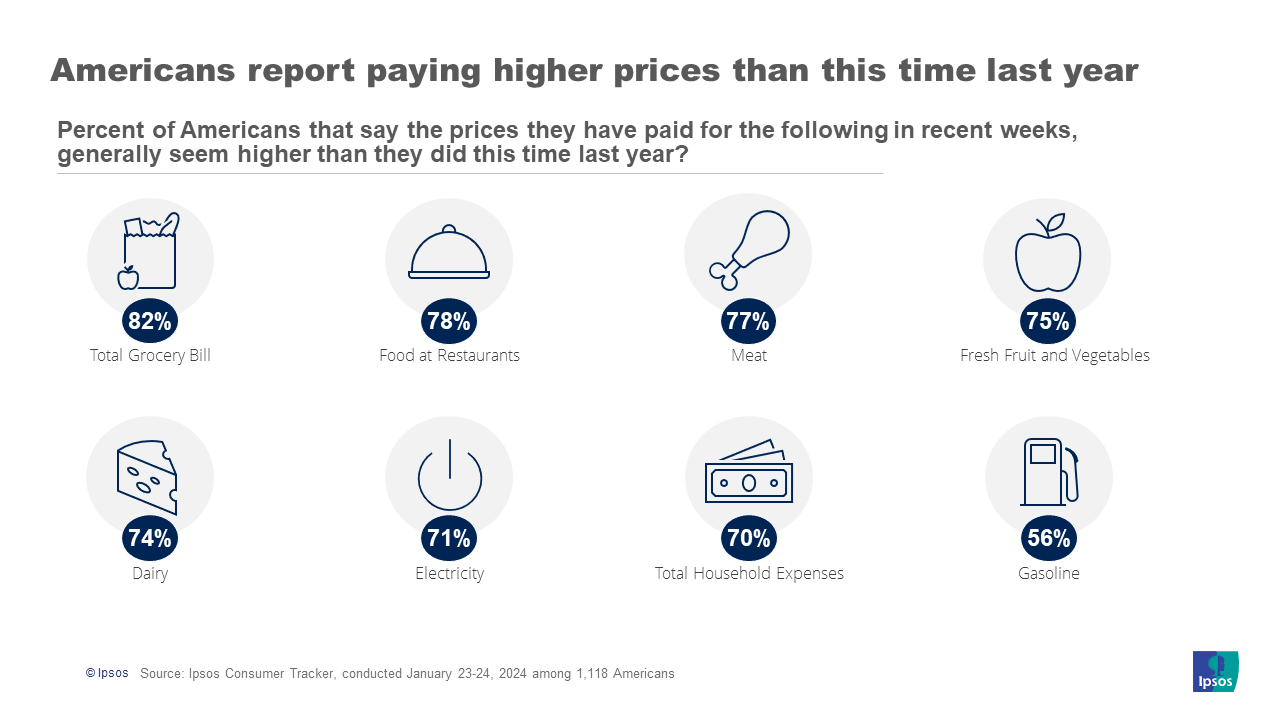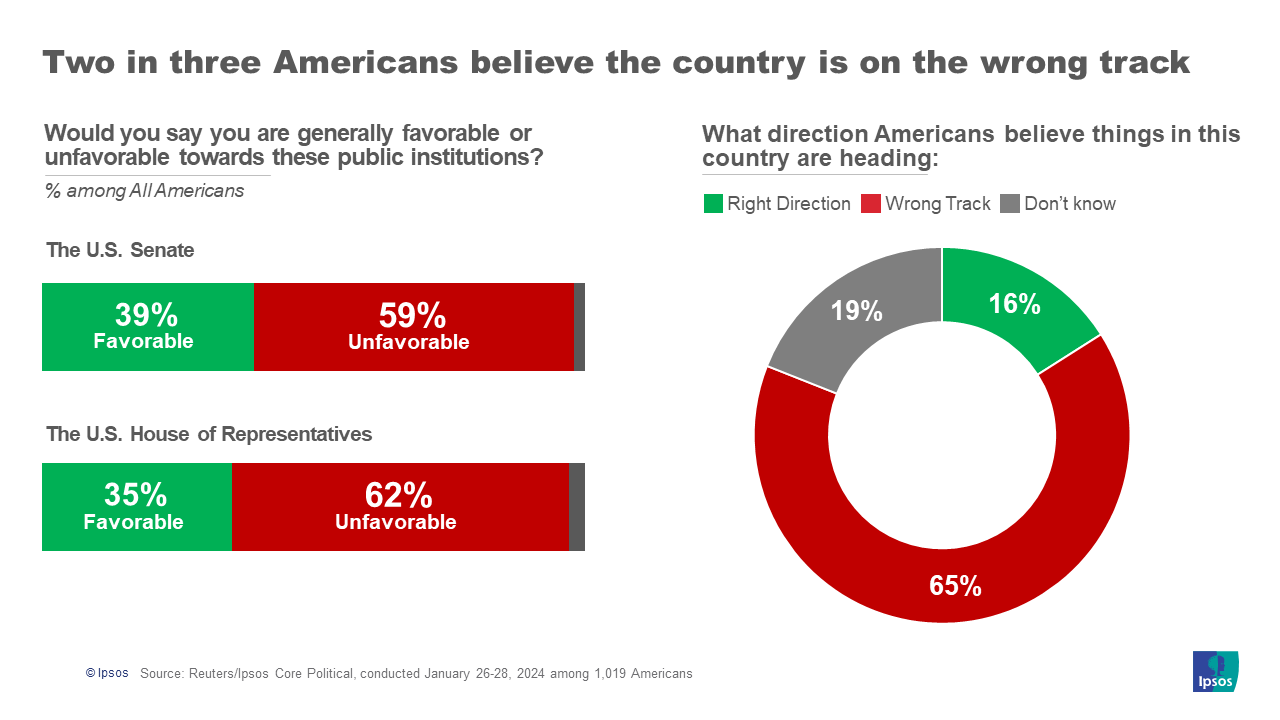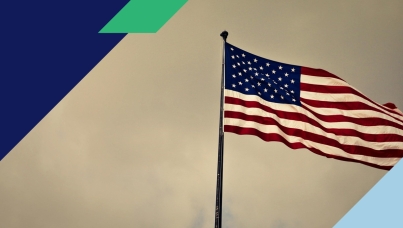Why Americans' future economic expectations remain pessimistic
Consumer sentiment in the U.S. for the past two years has been volatile, to say the least. In a time marked by various global conflicts, periods of high inflation, and routine chaos within the House of Representatives, things have been consistently inconsistent for Americans, and their opinions on the economy reflect that.
However, one area of consumer sentiment has differed from the rest: how they feel about the future of the economy. After declining significantly in 2022, the U.S. Expectations Index was marked by stability in 2023, closing the year with four consecutive months of no significant change and opening 2024 in line with its January 2023 reading.
While the Current, Investment, and Jobs indices spent the year showing constant movement, Americans’ feelings about the future of the economy largely stayed in the same pessimistic state, relative to the past. From 2015 – 2021, the Expectations Index had only fallen below the 60-point mark one time. Since 2022, the index has been below this mark twenty times.
So, why are Americans consistently pessimistic about the future? One potential explanation is that Americans continue to see higher prices for the goods and services they purchase, dampening optimism in the future. Another possibility is that the low confidence in the government to turn things around is bleeding into consumers’ outlook on the economy.
Americans continue to see higher prices in their daily lives
A likely major contributor to Americans’ muted expectations is that they consistently are seeing higher prices for the goods and services that they routinely buy.
Eighty-two percent of Americans report that their total grocery bill is higher than it was in January 2023. At least 70 percent said the same of food at restaurants (78%), meat (77%), fresh fruit and vegetables (77%), dairy (74%), electricity (71%), and total household expenses (70%).
And even as Americans are starting to notice falling gas prices, a majority still say that prices are higher now than they were at this point last year (56% vs 80% in August 2023).
Additionally, two in five Americans do not expect the prices of the goods and services they buy to go down, and just 25% expect them to go down within the next year.
So, despite a national unemployment rate that is at historically low levels, a growing economy, and inflation rates that are continuing to decline, consumer sentiment remains muted because these figures are not translating to how people see and experience the economy.
With this backdrop, it’s no surprise that just 34% expect their personal financial situation to be stronger six months from now, down ten points from January 2020.

Lack of confidence in government
While historically high inflation over the past two years is likely affecting Americans’ future expectations, it is also possible that a lack of trust in government is also playing a role.
In June 2023, overall U.S. consumer confidence declined significantly and hit its low point of the year. That decline came as Congress’ monthslong fight over raising the U.S. debt ceiling reached its boiling point. Although a deal was reached just before the deadline, the damage had already been done. The Current, Investment, and Jobs sub-indices all fell to or near their lowest points of the year; Americans were showing increased concerns about the current state of the economy and their own job security.
However, there was one aspect of American consumer sentiment that did not budge: The Expectations sub-index. Despite this government turmoil and decline in every other part of the Consumer Confidence Index, the public’s feelings about their economic future held steady. Perhaps, Americans’ low level of distrust in the government is now baked into consumers’ outlook on their economic futures, stabilizing this reading.
Last April, three-fourths of Americans who were familiar with politicians had an unfavorable opinion of them, with majority disapproval across partisanship. And recently, three in five Americans stated they have unfavorable views of both the House of Representatives (62%) and the Senate (59%). Two-thirds believe that the country is headed on the wrong track, and with Congress still unable to pass anything beyond temporary measures to fund the government, there is no reason to believe that their standing with the American public will improve anytime soon.
As long as Americans continue to have minimal faith, if any, in their elected officials, it is likely that their future economic expectations will continue to remain muted.

As the 2024 election season fast approaches, the economy is the number one issue for Americans. Their perception of both how the economy is currently and how they expect it to look in the future will likely play a major part in determining the outcome this November. How the government handles these next nine months will either instill renewed optimism for the future or leave consumers in their current state of pessimism.



